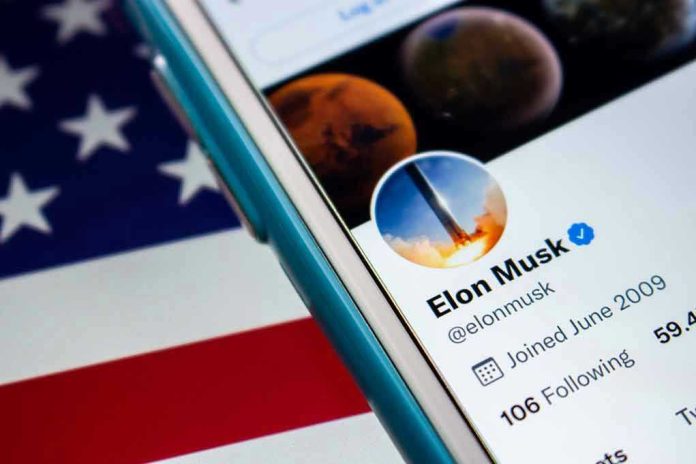
The next time you scroll X, keep in mind that the fiery MAGA influencer you’re reading may be orchestrating their political theater from halfway around the world—and Elon Musk’s latest transparency overhaul is making it impossible for them to hide.
Quick Take
- X’s new transparency policy unintentionally reveals that prominent MAGA influencers operate from foreign locations or use VPNs.
- The platform’s “About this profile” feature displays account creation date, location, and VPN usage, igniting a storm of scrutiny.
- Exposure raises serious questions about authenticity and foreign interference in U.S. political discourse during a pivotal election cycle.
- The shakeup signals a new era of accountability for online political personas, but also sparks debate over privacy and platform policy.
X’s Transparency Gambit Unmasks the Political Puppeteers
X’s rollout of an unprecedented transparency feature has transformed user profiles into digital dossiers. For years, suspicions swirled around anonymous accounts driving divisive narratives, but now the platform openly displays not only when an account was created but also where it’s operated from—and whether it’s connecting through a VPN. Intended to curb bot networks and foreign manipulation, this shift is more than a technical tweak; it’s a spotlight that exposes the real-world geography behind the digital mask.
Within days of the mid-2025 launch, journalists and digital sleuths began sifting through profiles of influential MAGA personalities. What they uncovered rewrote the script: numerous high-profile accounts were flagged as operating from foreign countries or regularly cloaking themselves in VPNs. The implication is explosive—voices leading domestic political movements may be, by policy’s own evidence, orchestrated from abroad or by actors with something to hide. Suddenly, the boundaries between American activism and foreign influence blur in plain sight, and the audience is left to reconsider who is truly shaping their newsfeeds.
The Ripple Effect: MAGA Movement and Election Integrity in the Crosshairs
Social media’s influence on elections has never been in question, but X’s new policy thrusts authenticity to the forefront. As the 2024 presidential cycle stoked anxiety about foreign interference, X faced mounting pressure to safeguard its digital agora. Musk’s approach—less content moderation, more radical transparency—was pitched as a solution to manipulation, not a trap for domestic influencers. Yet the outcome is a paradox: MAGA accounts, previously considered grassroots, now face reputational crisis as their foreign ties come to light. For conservative audiences, this revelation stirs a fresh debate on trust and patriotism in the social media era.
The short-term fallout is immediate. Influencers once celebrated for their bold rhetoric now scramble to explain their flagged statuses. Some cite personal privacy or security as reasons for VPN use; others claim technical glitches. The cloud of suspicion, however, is hard to dispel. For their followers—many committed to American conservative values—the question isn’t just where the message is coming from, but whether it’s truly American at all. The steady drip of new profile revelations ensures this controversy won’t fade quickly.
Unintended Consequences: Platform Accountability Meets Privacy Dilemmas
Elon Musk’s latest move on X is as much a philosophical experiment as a technical fix. By prioritizing transparency, Musk seeks to empower users and root out manipulation, yet the policy’s granularity raises privacy alarms. Critics argue that exposing location and VPN status risks doxing and harassment, while supporters hail it as overdue accountability for those shaping public opinion. The arms race between platforms and influence operations now unfolds in real time, with every new flagged account challenging the balance between free speech and security.
New Musk policy on X unwittingly exposes MAGA influencers as foreign trolls – The Independent https://t.co/4MEr3EyG1P
— HeidiLeeStockenstrom☮️ (@HLStockenstrom) November 24, 2025
Industry analysts compare X’s initiative to prior efforts on Twitter, Facebook, and YouTube, where bot purges and state-affiliated labels aimed to clean up political discourse. The difference now is visibility—users themselves are invited to scrutinize authenticity, not just trust platform moderators. The result is a new kind of digital self-policing, where every influencer must defend not only their ideas but their provenance. As regulators and watchdogs monitor the fallout, the rest of the tech sector watches closely, anticipating ripple effects and potential demands for similar transparency measures elsewhere.
The Future of Influence: Adaptation or Attrition?
The exposure of foreign-based MAGA influencers marks a turning point in online political engagement. In the short term, expect a flurry of attempts to adapt—some influencers will abandon VPNs, others will double down on transparency, and a few may vanish altogether. The long-term implications are more profound: audiences may grow more skeptical of online personas, and platforms may face pressure to extend or refine transparency efforts. For foreign actors, the challenge escalates, as new detection tools force ever more sophisticated evasion tactics.
As X’s policy continues to unmask the digital puppeteers, the boundaries of political authenticity are redrawn. Social media users—especially those who value American conservative principles—will need to decide what matters most: the message, the messenger, or the means by which both are delivered. The only certainty is that the era of hiding behind a username is ending, and the consequences will reverberate far beyond the next election.
Sources:
EUR Research Information Portal







